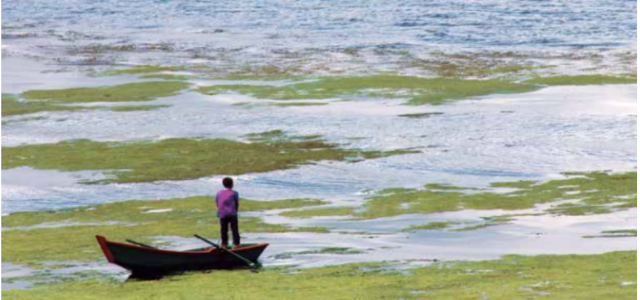Central America has an abundance of water, however, the changing climate, the lack of water development infrastructure for storage, and poor regulation creates water scarcity in the dry season. The region has been experiencing elevated climate variability which has been evidenced by the increase in temperatures and the interannual variability of rainfall. The concentration of rainfall in certain periods and of droughts in others affect the quantity and quality of water available for human activities and for ecosystems.
In 2014, Central America experienced severe drought that led to estimated loss of about US $650 million from agricultural, hydroelectric, and water sectors. To cope with the climate extremes, GWP contributed to the regional Environmental Strategy (ERAM) that was approved by the Council of Ministers of the Central American Commission for Environment and Development (CCAD) which included IWRM to promote the environmental integration of the region for the economic and social development of its people and strengthening the available resources.
Agenda for action
The Heads of State of the Central American Integration System (SICA) issued a mandate for the entities that are part of the System that work with water issues to carry out the Congress for the Regional Analysis of Water (2017). GWP was an active participant and helped in the establishment of IWRM guidelines. GWP Central America has been working to strengthen regional cooperation in water management by convening the Water Directors, who are responsible in the Ministries of Environment for carrying out the national water agenda, and to participate in the different global processes, including the 7th and 8th World Water Forums (WWF). GWP contributed to consolidating this technical group that is responsible for implementing the Water Agenda at the national level.
Sharing Knowledge
GWP also facilitates and coordinates the meetings with ministers of environment and develops partnerships with new alliances such IUCN and WWF. GWP played an important role in disseminating the information and knowledge through Central American biannual publication Entre-Aguas.
The major outcome of this programme was the establishment of the Water Agenda which is an action plan based on the IWRM guidelines to implement the water component in ERAM. The Water Agenda includes four strategic actions to accelerate the implementation of IWRM in the region: promote governance systems for the sustainable use of water; support the development of capacities and technologies to guarantee water security; develop instruments for the integrated management of international water courses; promote the conservation of surface and groundwater sources in terms of water quality and quantity.

